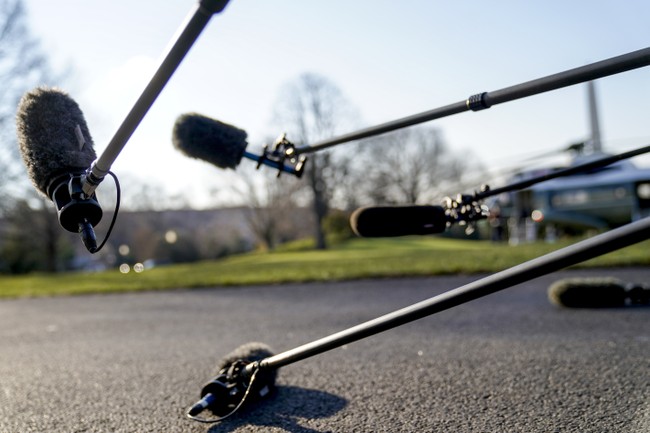Pity the poor journalists who, after a four-year break from doing their jobs, have unexpectedly been pressed back into work by the Donald Trump election victory. Instead of an additional term spent fawning over Kamala’s historic rise to power and filing endless reports on the racist/sexist/bigoted Republicans in Congress, these thought leaders have to toss all of their prepared columns in the furnace and go back to actually committing journalism, and they are cranky about this.
At Vanity Fair, Natalie Korach spoke with a number of White House correspondents to get a feel for their mindset regarding the upcoming Trump presidency, and to put it simply, they are not happy about the upcoming job duties. Peter Baker, from the New York Times, sets the table for this meal of bitterness. “Everybody’s exhausted, and he hasn’t even taken office yet,” whines the D.C. veteran. This is a feeling throughout the press corps, we are shown.
“Trump has already provided a steady stream of developments,” details Korach about the harsh conditions these intrepid journalists are facing today. “Reporters I’ve spoken to who covered Trump’s first term in the Oval Office see the signs of a punishing news cycle to come in his second presidency.” Oh dear, we should all feel a pang of sympathy for these afflicted souls toiling in the oppressive environment of their chosen profession. (I’m not saying we do feel this way; laughter is the natural reaction, but we are instructed to have empathetic feelings.)
Peter Baker continues his sympathy pledge drive:
Anybody who went through it the last time remembers how nonstop it was. It ends up kind of becoming all-consuming and taking over your life. It wears you down. You have to expect that covering a big story is, by definition, taxing because it’s important.
Peter also decries that Trump is a constant open floodgate of content, from his social media platform to Truth Social and elsewhere. He declares this time, they will not be jumping on every spoken syllable from the incoming president. This is something echoed by Meridith McGraw from Politico, who states the outlets will not be in “hair of fire” mode over all of Trump’s postings.
Call me cynical about this ability to show restraint. McGraw, for one, wrote a book centered on Trump and his proclivities while in office, but now she is tired of it all. And let’s recall, these are the same people who complained bitterly about Trump’s “mean tweets” yet always felt it was compulsory to report on and display his supposedly outlandish words. They were essentially saying, These words from him need to stop because they are dangerous – here, we’ll show you! There was even a pattern seen that when a story would break, reporters or pundits would announce they were awaiting Trump to post a comment about the story.

What is most striking about this stretch ahead of the inauguration is that it is the polar opposite of what was seen after the 2016 election. Harken back to this interim period eight years ago, when the press was energized and gathering their journalistic pitchforks and torches. They rose up as a battalion sworn to defeat this man with an incursion into their political ecosystem.
That was a time when reporters were drafting their Pulitzer speeches and pre-writing dispatches about issues they were confident would be playing out. Jim Acosta had his hair stylist put on a retainer. Media archive sections went dormant as anything uttered by Trump was declared wrong, regardless of any precedent. Newsrooms were hiring more staffers in anticipation of the battle they were certain was to be waged.
This time around the mood is more morose. Perhaps it has to do with the fact they failed to stop him from regaining the White House. Maybe after so many busted narratives - Russian collusion, Nazi Fascism, death to democracy as we know it, et al. - they have run out of material. Or, most likely, it is dawning on them that these vacant narratives delivered in bulk and applied with the nuanced precision of a Caterpillar front-loader not only are unsuccessful but have driven off a large core of the intended audience.
These failed techniques are not only played out, but publishers are no longer tolerant just to let their staffers work untethered. From Jeff Bezos at WaPo to Mark Thompson at CNN and the publisher of the LA Times, the names above the mastheads are no longer tolerant of these tactics. Peter Baker and others are facing a harsh reality – they may have to actually work for a change.















Join the conversation as a VIP Member